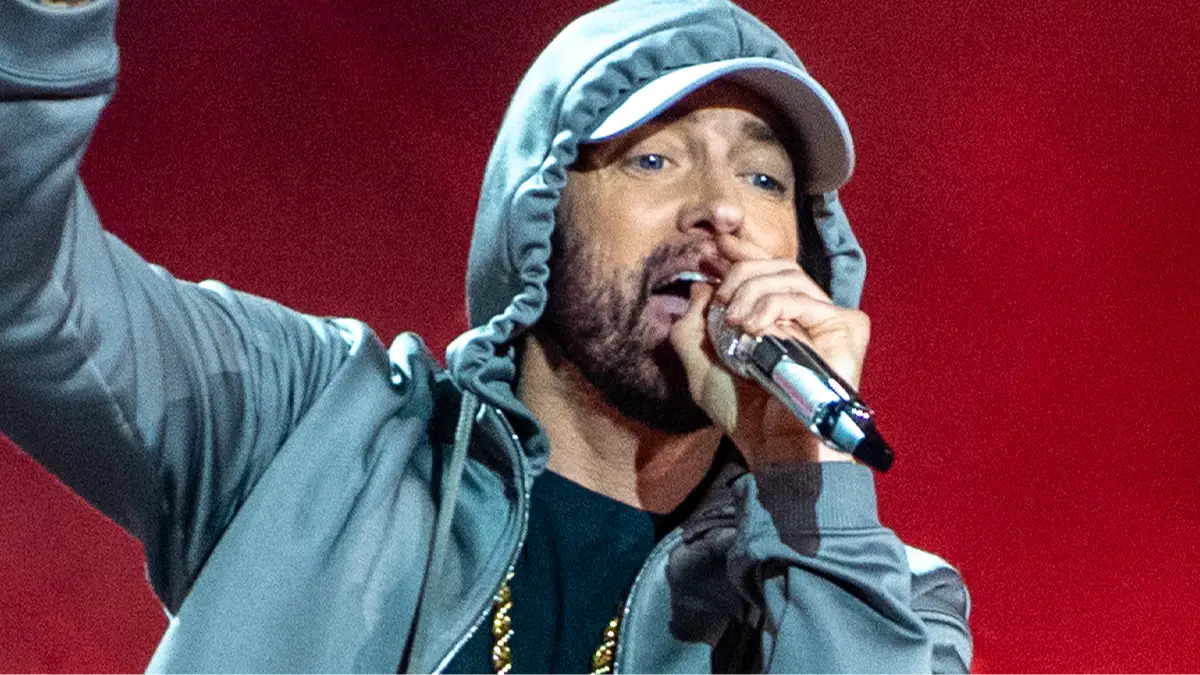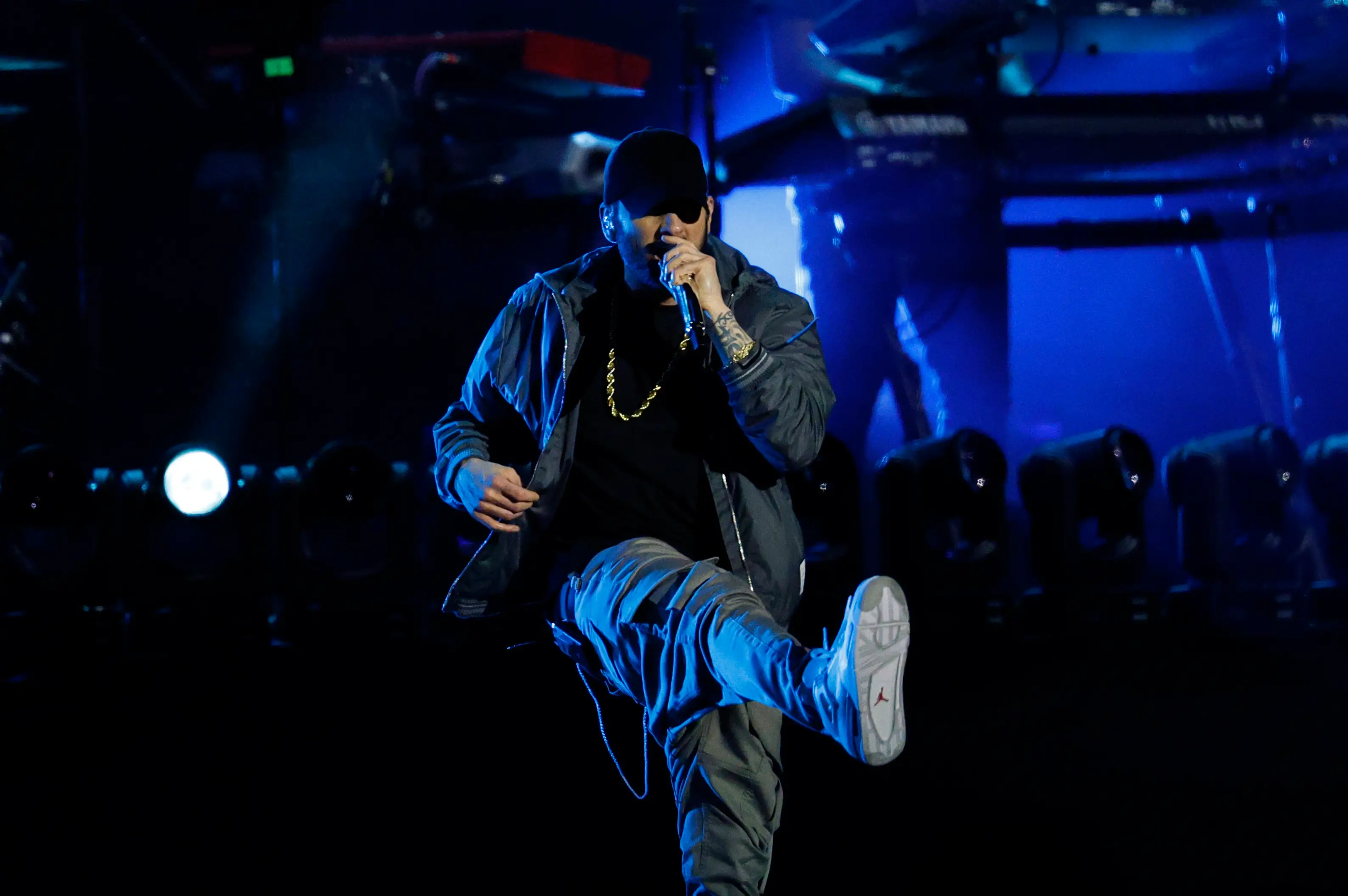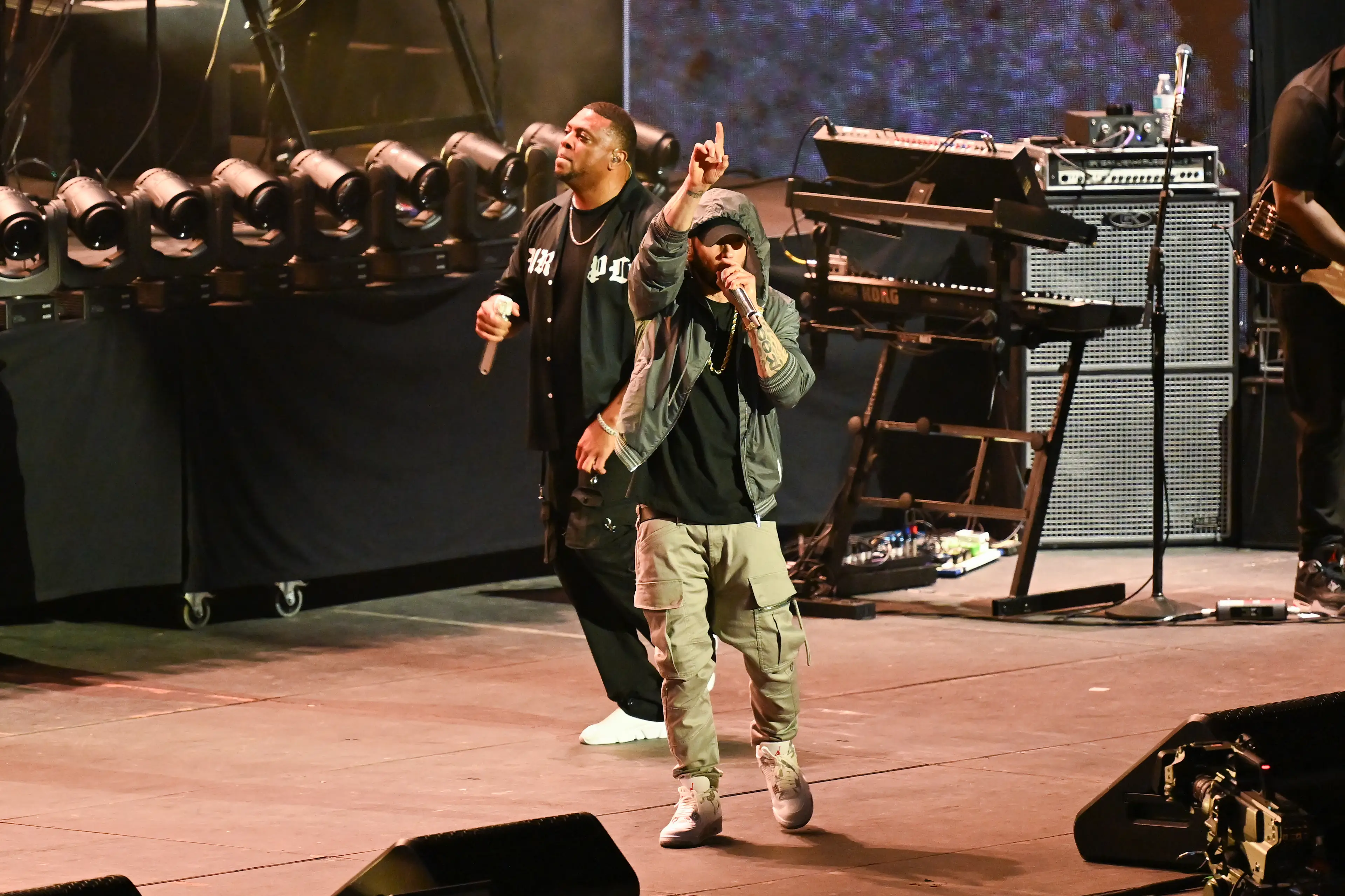
Warning: This article contains discussion of violence which some readers may find distressing.
Eminem was once slapped with a $1 million lawsuit after he named and shamed a boy who bullied him in school.
When you think of Eminem's diss tracks, you probably think of the likes of Slim Shady—real name Marshall Mathers III—hitting out at the likes of Diddy or Benzino.
However, another lesser known person who found themselves shouted out by the rapper is a man who went to school with the 52-year-old.
Advert
Released as part of Eminem's 1999 album The Slim Shady LP, the song 'Brain Damage' is inspired by the rapper's experiences being bullied while growing up.
The song's narrative details being forced to give up lunch money, as well as faking the need to go to the nurse to avoid said bully.
And one verse goes on to name a 'fat kid' called DeAngelo Bailey.
Eminem's diss track 'Brain Damage'
The lyrics continue: "I was harassed daily by this fat kid named DeAngelo Bailey/ An eighth grader who acted obnoxious, 'cause his father boxes."
The song continues saying Bailey would 'shove me in the lockers' and 'beat me into submission' in the bathroom.
"He banged my head against the urinal 'til he broke my nose/ Soaked my clothes in blood, grabbed me and choked my throat," the song continues.
"I tried to plead and tell him we shouldn't beef/ But he just wouldn't leave/ He kept chokin' me and I couldn't breathe/ He looked at me and said, 'You gonna die, honky'."
The brutality continues with Eminem then rapping about hitting back at the bully, 'cock[ing] the broomstick back' and swinging 'hard as [he] could' and beating them 'over the head' until the stick 'broke'.
Eminem doubled down on the claims in the diss track in interviews with Rolling Stone and The Washington Post in 1999, alleging 'all of it is true' bar him saying 'in eighth grade'—noting he'd 'changed little things up just to make the story a little bit more interesting'.
Part of the verse goes on to say he was 'beat over the head' by his mom until his 'whole brain fell out of [his] skull'. It's fair to say there was some artistic license being used, Eminem adding: "The whole story is true up until my brain falls out of my head."
Indeed, Bailey even admitted the same year he used to bully Eminem, so why did he then choose to sue the rapper?

The bully's lawsuit in response
In an interview with Rolling Stone in April 1999, Bailey admitted 'there was a bunch of [kids] that used to mess with him [Eminem]'.
"You know, bully-type things. ... We flipped him right on his head at recess. When we didn't see him moving, we took off running. We lied and said he slipped on the ice," he said.
However, after Eminem released 'Brain Damage', Bailey filed a lawsuit in 2001 seeking damages of $1 million, claiming the rapper had breached his privacy and slandered him.
The complaint alleged despite Bailey admitting to certain degrees to bullying, Eminem had over-dramatized and made up incidents which harmed Bailey's reputation.
However, a judge ultimately ruled in Em's favor.

Judge's ruling on Eminem's bully's lawsuit
Why? Well, Circuit Judge Deborah Servitto wrote: "The lyrics are stories no one would take as fact. They're an exaggeration of a childish act.
"It is therefore this Court's ultimate position that Eminem is entitled to summary disposition."
Eminem's attorney at the time, Mary Massaron Ross, responded: "The fact that there may have been differences in the precise facts didn't matter because the gist of the story was true by Bailey's own admission."
Bailey's attorney, Byron Nolen, noted he wouldn't be appealing the ruling.